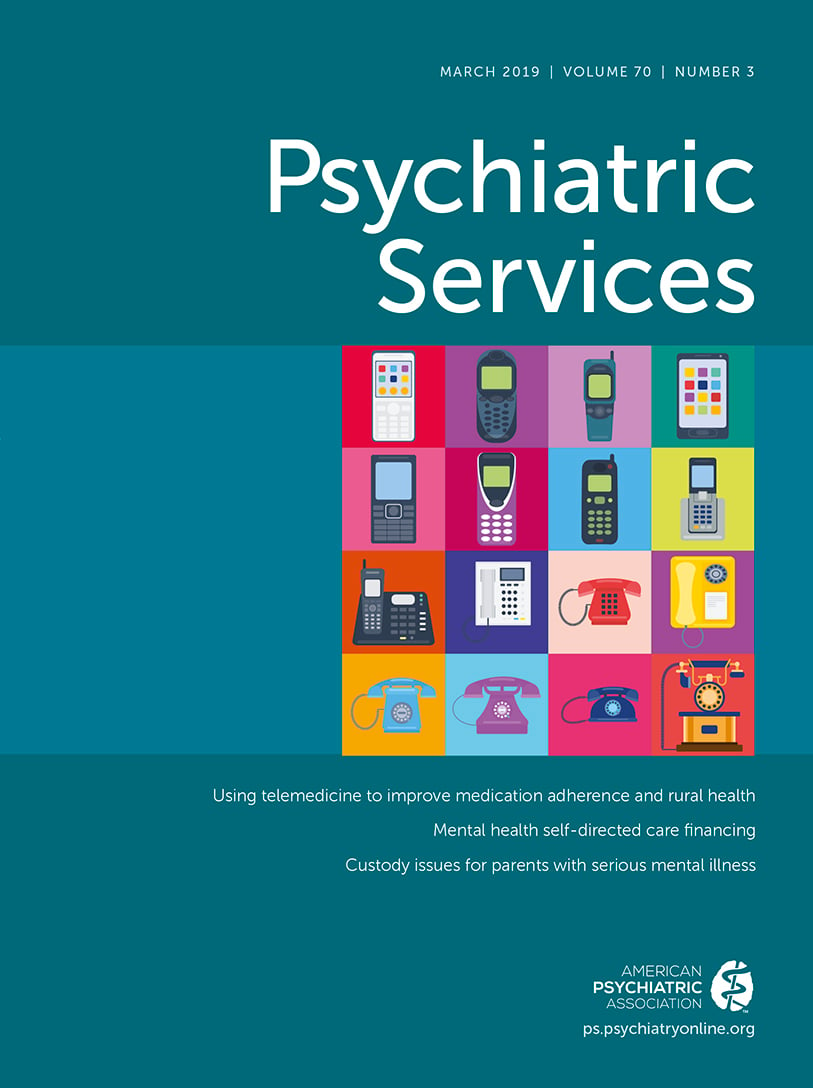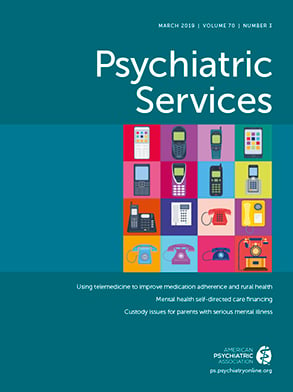TO THE EDITOR: In 2014, the New York City (NYC) Health Code was amended to require NYC hospitals to report to the NYC Department of Health and Mental Hygiene (DOHMH) when someone age 18–30 years is hospitalized with first-episode psychosis (FEP) (
1). When hospitals notify DOHMH of an admission, staff from DOHMH’s NYC Supportive Transition and Recovery Team (NYC START) visit the patient to offer services to improve linkage to care and transition back into the community.
To identify missed opportunities to intervene with young adults with FEP before the first hospitalization, we manually reviewed hospital discharge summaries from 145 NYC START enrollees discharged between January 1 and July 31, 2016. We noted time from behavior change to hospitalization (TBCH), measured from the time when the patient or others reported first noticing behavior suggestive of early psychosis (e.g., withdrawing or talking to self) to time of admission as a proxy for duration of untreated psychosis (DUP). Because the World Health Organization recommends limiting DUP to less than 90 days (
2), we divided the sample into TBCH ≤90 days versus >90 days. We reviewed 30 discharge summaries to identify common areas of potential missed opportunities, then coded these opportunities as present or absent in the remaining summaries.
Of 145 discharge summaries examined, 38 were removed from analysis, 31 (82%) of which indicated psychiatric hospitalization prior to that precipitating NYC START referral, six (16%) indicated lengthy prior outpatient treatment for psychosis, and one (2%) indicated substance-induced psychosis. Of 107 remaining, there were no statistically significant differences in gender, age, race, or insurance between those with TBCH ≤90 days (N=55) and those with TBCH >90 days (N=52). After adjusted logistic regression analysis, we found that discharged patients with declines in educational performance or discontinued education had greater odds of TBCH >90 days compared with those who stayed in school or had completed a degree (odds ratio [OR]=4.33, 95% confidence interval [CI]=1.72–10.87). Those with family or friends noticing behavior changes had greater odds of TBCH >90 days compared with those who did not (OR=4.01, 95% CI=1.31–12.34). [A table in the online supplement indicates demographic and additional information.]
Findings suggest that family and friends often identify behavior changes that constitute the prodromal phase of psychosis. Also, expectedly, FEP may cause major disruptions to education and employment. Although data were limited to discharge summaries, they suggest that increasing awareness of family and friends to symptoms associated with FEP could reduce TBCH. Past studies described that families often do not act because they do not understand what symptoms signify (
3). Informational campaigns were effective in reducing DUP in Norway and Singapore, with self, family, or friends making most referrals to the Norwegian Early Treatment and Intervention in Psychosis Study (
4,
5). Eighty-two percent of those excluded from analysis had prior psychiatric hospitalization, suggesting they may have had outpatient intervention. Because many patients concurrently experienced major disruptions in education or employment, we need methods to increase awareness among school personnel and discharge planners to include referral to services that assist with re-engaging in education and employment to help discharged patients transition back into the community.

